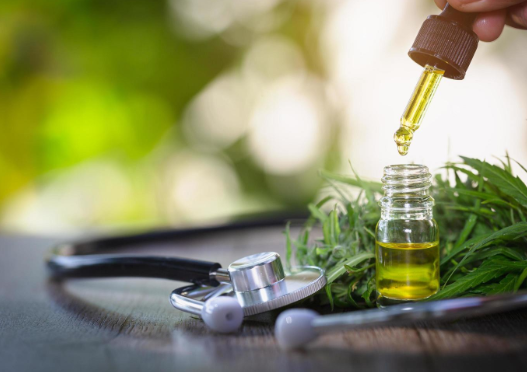Welcome to the beginner’s guide to incorporating CBD into your wellness regimen. CBD, short for cannabidiol, is a naturally occurring compound found in the cannabis plant. It has gained significant popularity in recent years due to its potential health benefits and non-psychoactive properties. In this comprehensive guide, we will explore everything you need to know about CBD, how to incorporate it into your wellness routine, and address common questions and concerns. So let’s dive in and discover the world of CBD!
What is CBD?
CBD is one of the many cannabinoids present in cannabis plants. Unlike its well-known counterpart, THC (tetrahydrocannabinol), CBD does not produce the euphoric “high” associated with marijuana use. Instead, CBD offers a range of potential therapeutic benefits without altering one’s state of mind.
CBD interacts with the body’s endocannabinoid system (ECS), which plays a crucial role in regulating various bodily functions such as sleep, mood, appetite, and immune response. By interacting with cannabinoid receptors in the ECS, CBD may help promote balance and overall well-being.
How Does CBD Work?
CBD interacts with the body through the endocannabinoid system, which consists of receptors located throughout the body. The two main receptors, known as CB1 and CB2, are found in different areas. CB1 receptors are primarily located in the central nervous system, while CB2 receptors are mainly found in the immune system and peripheral tissues.
When CBD is consumed, it interacts with these receptors, influencing various biological processes. CBD can also interact with other receptors and pathways in the body, such as serotonin receptors, which may contribute to its potential therapeutic effects.
Incorporating CBD into Your Wellness Regimen
Now that we have a basic understanding of CBD, let’s explore how you can incorporate it into your wellness regimen for maximum benefit.
1. Consult with a Healthcare Professional
Before incorporating CBD into your routine, it’s essential to consult with a healthcare professional, especially if you have any underlying medical conditions or are taking medications. They can provide personalized guidance and help ensure that CBD is safe and appropriate for you.
2. Determine Your Preferred CBD Product
CBD comes in various forms, including oils, capsules, edibles, topicals, and more. Each form has its advantages and considerations. Consider your preferences, lifestyle, and desired effects when choosing a CBD product.
3. Start with a Low Dosage
When beginning your CBD journey, it’s recommended to start with a low dosage and gradually increase it as needed. This allows your body to adjust and helps you find the optimal dosage for your needs. Remember that everyone’s response to CBD may vary, so finding the right dosage may require some experimentation.
4. Consider the Time of Consumption
The timing of CBD consumption can also play a role in its effectiveness. Some people prefer taking CBD in the morning to promote focus and clarity, while others find it more beneficial in the evening to support relaxation and restful sleep. Listen to your body and experiment with different times to find what works best for you.
5. Monitor Your Body’s Response
As you incorporate CBD into your wellness regimen, pay attention to how your body responds. Keep track of any changes in your overall well-being, mood, sleep patterns, and any specific symptoms you are targeting. This will help you assess the impact of CBD on your health and make any necessary adjustments.
FAQs (Frequently Asked Questions)
Can CBD Get You High?
No, CBD does not get you high. Unlike THC, CBD is non-psychoactive and does not produce the intoxicating effects commonly associated with marijuana.
Is CBD Legal?
The legal status of CBD varies by country and region. In many parts of the world, CBD derived from hemp with less than 0.3% THC is legal. However, it’s crucial to research and understand the specific laws and regulations in your area before purchasing or using CBD products.
Are There Any Side Effects of CBD?
CBD is generally well-tolerated by most individuals. However, some people may experience mild side effects such as dry mouth, drowsiness, or changes in appetite. It’s always advisable to start with a low dosage and monitor how your body reacts to CBD.
Can I Take CBD with Other Medications?
If you are currently taking medications, it’s important to consult with your healthcare professional before incorporating CBD into your wellness regimen. CBD can interact with certain medications, potentially affecting their efficacy or causing unwanted side effects.
Will CBD Show up on a Drug Test?
While pure CBD is unlikely to trigger a positive result on a drug test, some CBD products may contain trace amounts of THC. If you are concerned about drug testing, opt for CBD products labeled as THC-free or broad-spectrum, which have undergone additional processing to remove THC.
How Long Does It Take for CBD to Work?
The onset and duration of CBD’s effects can vary depending on factors such as dosage, method of consumption, and individual body chemistry. Some people may experience immediate effects, while others may require several days or weeks of consistent use before noticing any significant changes.
Conclusion
Incorporating CBD into your wellness regimen can be a valuable addition to promote overall well-being. Remember to consult with a healthcare professional, start with a low dosage, and monitor your body’s response. With the right approach and understanding, CBD can potentially offer a range of therapeutic benefits without unwanted psychoactive effects. Embrace the world of CBD and discover how it can enhance your wellness journey.
